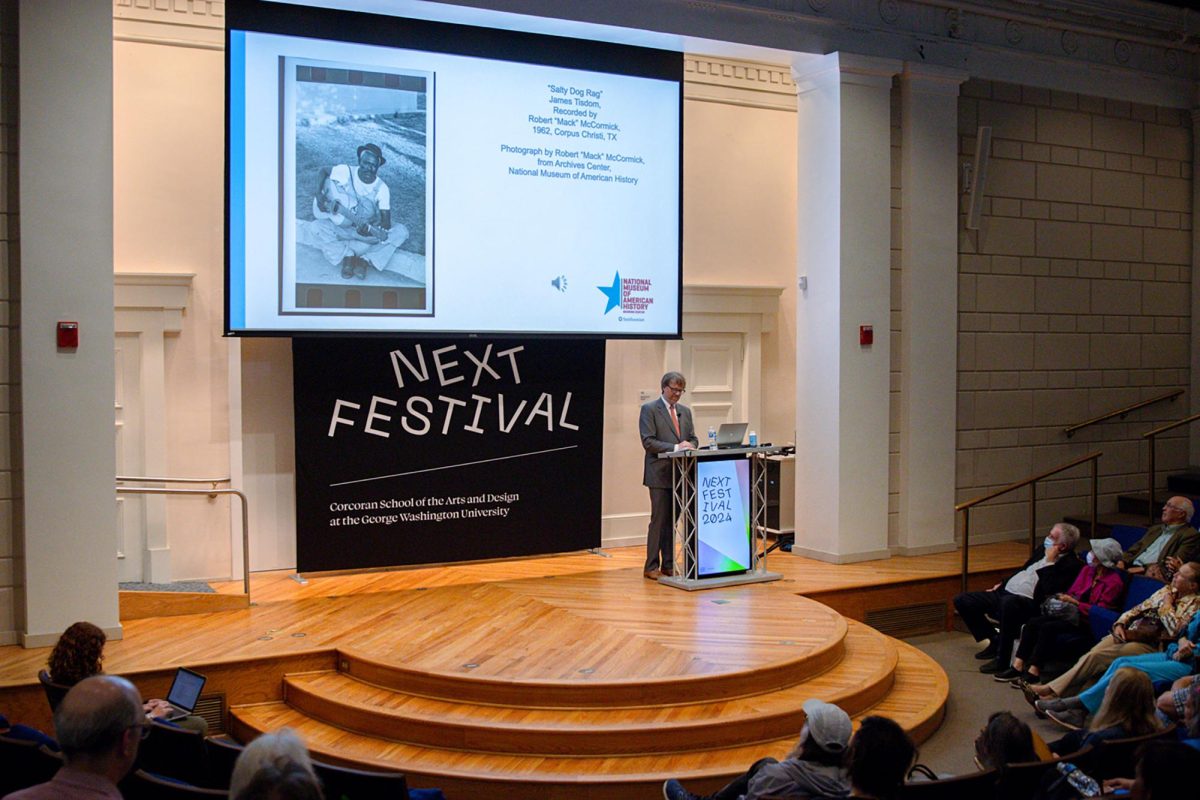Bill Gates spoke about his latest book on the need for immediate action to combat climate change.
Gates joined a webinar Wednesday for GW, Georgetown, American and Howard universities’ students, where he spoke about his book, “How to Avoid a Climate Disaster,” outlining a plan for the planet to reach net-zero greenhouse gas emissions. Michelle Miller, a co-host of the Saturday edition of “CBS This Morning,” moderated the conversation and a Q&A session.
Gates said his book focuses primarily on the two categories of human behavior most commonly associated with emissions – electricity and transportation. He said his book aims to raise awareness about the needed changes to everyday practices and new technologies that will need to be introduced to facilitate a 100 percent reduction in emissions.
“Our commitment to developing these innovations will mean the difference between a future where everyone can live a healthy, productive life and one where we’re constantly dealing with the human and financial crises at a historic scale,” he said.
Gates said these changes need to occur across the globe and require innovation to adapt everyday sectors, like electricity and agriculture, to become more climate-friendly. He added that the most climate-friendly changes have occurred in places where they are easy to implement, but the “hardest” area has yet to be solved.
“In my book, I’ve got the idea that we can solve it,” Gates said. “But the idea that if you don’t, it’s kind of a disaster trying to balance that – the message of hope with the hate.”
Gates said it was “tragic” that the United States temporarily withdrew from the Paris Agreement because it put the country behind others in reducing emissions. The United States officially rejoined the agreement Friday, under the direction of President Joe Biden.
He added that the accord provides for short-term, “easy” methods to achieve progress, and he warned that some may distort the public’s view of the complexity of climate action. He said the United States must play a role in developing new technologies to help the international community lower emissions without raising the production costs of essential materials like cement and steel.
“The U.S. has the majority of the innovation capacity in the world,” Gates said. “Europe, China and many others will contribute as well, but between our universities, our national labs, our willingness to take risks in every industry, you see the U.S. playing a strong role.”
Gates said the climate and environmental justice movements need to have a “better dialogue” because marginalized communities, particularly in Africa, that have few resources will feel the effects of climate change first. He said Africa is already experiencing difficulties in farming and preserving lands with the onset of rising sea levels.
Black and Brown communities additionally endure higher amounts of pollution than White communities, he said. Efforts and innovations to combat climate change must reach all communities, a priority for the White House’s first-ever environmental justice coordinator, Cecilia Martinez, Gates said.
He said the United States has been slow to adopt new technologies because of the higher cost of more climate-friendly options. He said nuclear reactors are becoming more expensive, and the costs of projects involving reactors are unable to compete with inexpensive natural gas.
Gates said creating a new generation of nuclear technology could become a necessary part of solving climate change, as long as governments and companies are willing to take responsibility for its costs and safety. He said the effects of climate change will become most visible during current college students’ lifetime, unless action is taken immediately.
“This is this generation’s No. 1 problem,” he said. “It’s their problem. It is not going to be their children’s and grandchildren’s. This is your issue, and you guys have to run with it.”








